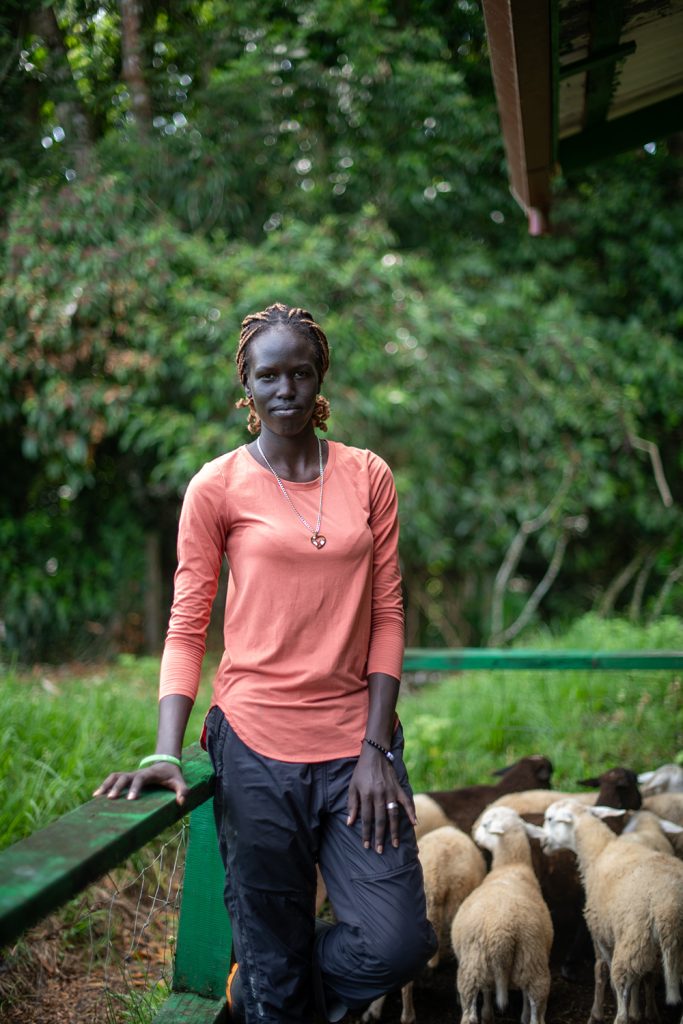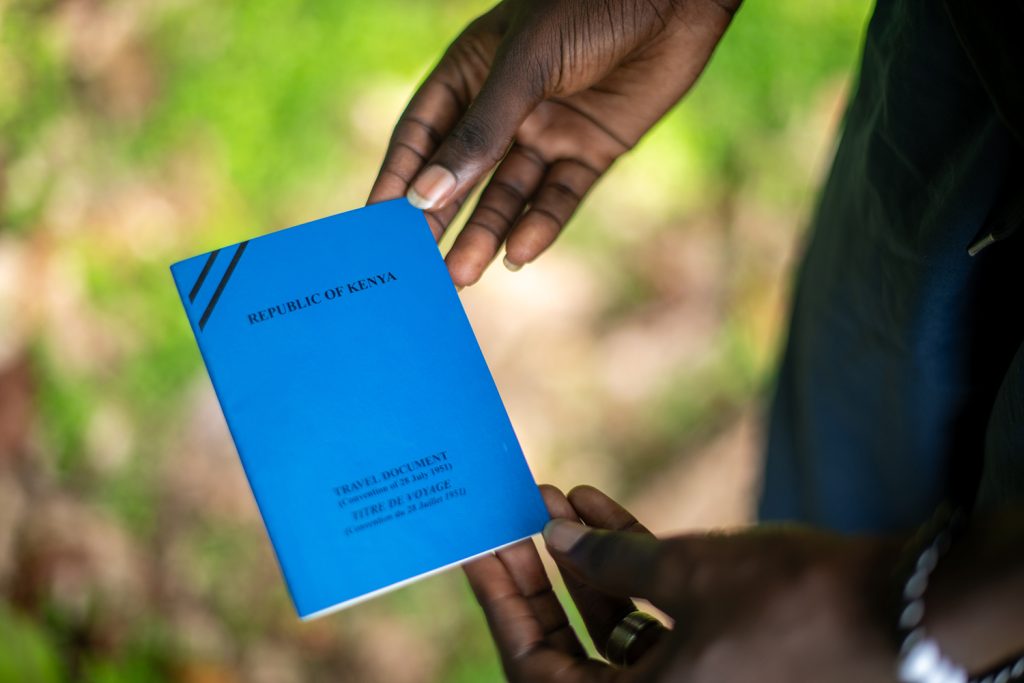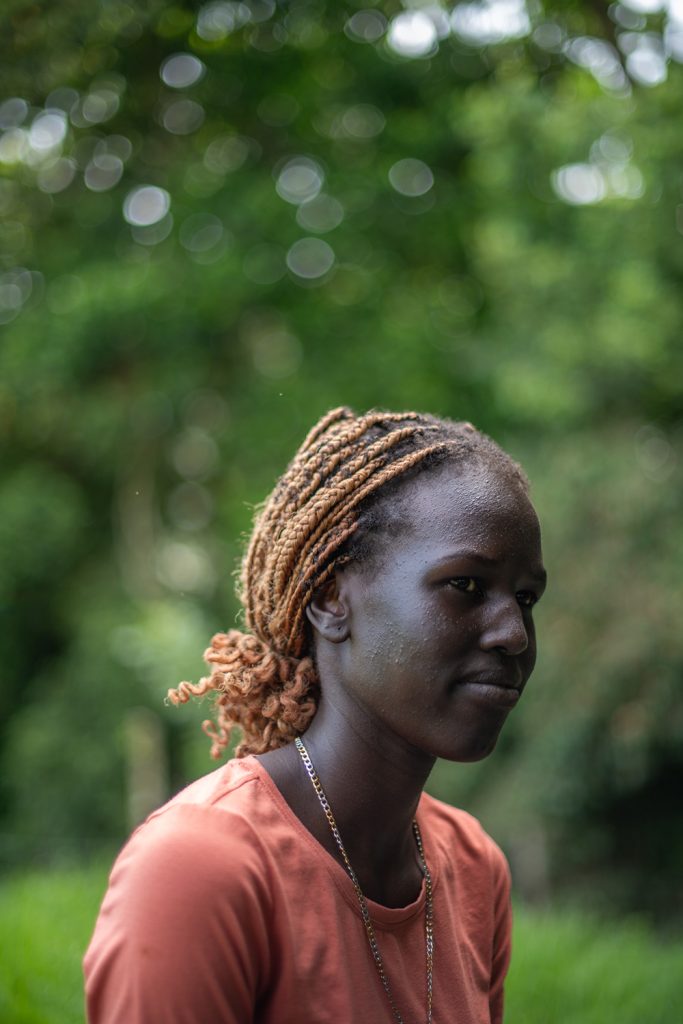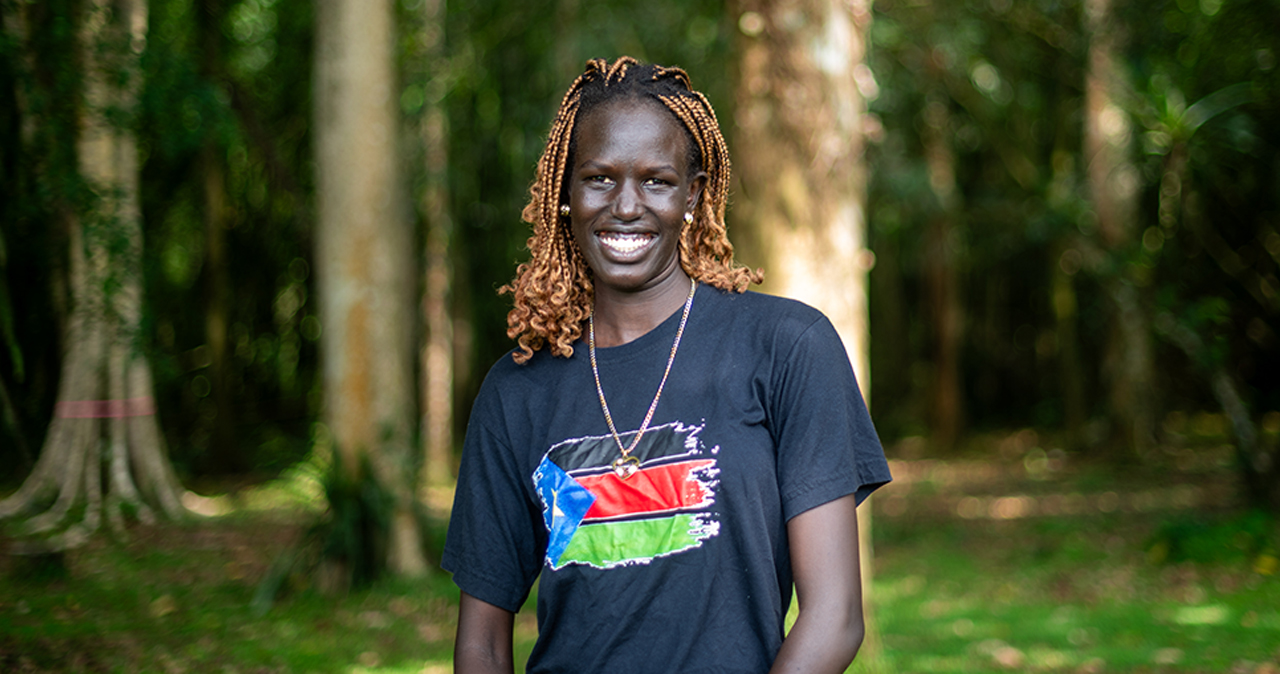When Apat was a child and just beginning to study at a school outside the refugee camp where she was born and raised, a woman raised her voice one day to tell her to leave, to go back to her country, that she didn’t belong there. Apat, afraid and in pain, shook and cried in silence, not telling anyone what happened. “What did I do to deserve this?” she asked herself many times. Her classmates followed the woman’s lead, confirming a status she didn’t choose but which nevertheless defined her: being a refugee.
Apat Bul Kiir Aguer (Class of 2027, South Sudan) was born in Kakuma, one of the largest refugee camps in Sub-Saharan Africa, located in Kenya. Apat knows little about her mother’s history, only that she had fled the armed conflict that was just beginning to take shape in South Sudan as it became an independent republic. She says her mother speaks little about that time as she doesn’t want to reopen a wound that still hurts. For this reason, Apat reconstructed her history by learning about the conflicts of a country she has never been to but still recognizes as her own. She says it is her home in the way people say “my country” to refer to a territory they consider home. She says “refugees don’t have that ability—it’s due to circumstances; no one chooses refugee status of their own accord.”

Apat grew up in Kakuma, a camp of about 200,000 people who fled violence, poverty, and war. She knew hunger at a very young age, watching her mother and other women learn to ration the small portions of food they received from various organizations. She understood that violence was tangible by listening to the stories of families who lost everything to save themselves. She knew, thanks to her mother, that education was the only door to improving the conditions of her life, and since then, Apat has fought for opportunities that allow her to be educated and grow.
This is the main reason Apat is at EARTH. From the moment she learned about the university, she put all her effort and hope into the admission process. The day she received the call announcing that she had been admitted to EARTH with the support of the Mastercard Foundation Scholars Program, she knew her life would change forever. Apat celebrated this achievement with her mother, who has always pushed for her and her siblings to have access to opportunities that would allow them to achieve their dreams and build a promising future.

Before leaving for EARTH, Apat had to make a great effort to obtain a refugee passport, a special document with a turquoise cover that has no flags or emblems, only the name of the host country. This allows refugees to travel globally, open a bank account, apply for family reunification, and have their refugee status recognized. Many people like Apat lose growth opportunities due to the complications that arise when there is little legal record of the existence and immigration status of those forced to flee their country and start over elsewhere.

After Apat resolved these issues, she traveled to Costa Rica, quickly learned to speak Spanish, and began to see a new world of possibilities before her. She envisions returning to Kakuma to implement a community agriculture system that allows families to plant and harvest their own food and wants to create social development spaces where children and young people have access to better educational opportunities and support networks to talk about their mental health. By replicating community development models like the ones she is learning at EARTH, she believes that more young people can become leaders of change.

Apat’s main goal is to improve food security. In Kakuma, she heard stories of women who took their own lives out of despair from not being able to feed their children. She knows that none of those women made such a decision lightly. Apat wants to be part of the solution—to soak up knowledge and tools to generate real change in a very vulnerable community.
“Being a refugee is something people should understand. We don’t choose to be one. Circumstances happen, conflicts, natural disasters. And it’s hard. It’s a life that forces you to be strong and resilient.”
For this reason, it is important for Apat to tell her story to make visible the reality of thousands of people in this world. She no longer remains silent or feels fear but raises her voice to tell the world that she has the right to belong to any place where she sees a present and a future, any place she can call home.

